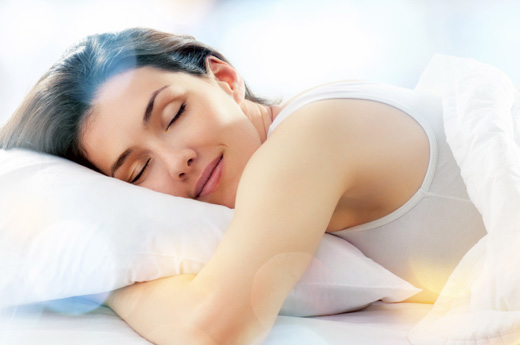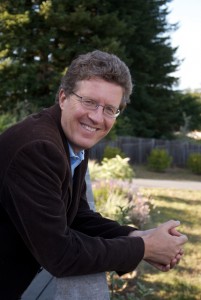 by guest blogger Isaac Eliaz, MD, MS, LAc, integrative medicine pioneer
by guest blogger Isaac Eliaz, MD, MS, LAc, integrative medicine pioneer
Why do we sleep? This is really a modern question. Few people wondered about sleep’s utility before Edison invented the electric light bulb. Freed to be productive through the night, we began to neglect rest, even treat it as a distraction. Imagine how much we could get done if we didn’t have to sleep?
While this idea may appeal to some, humans simply aren’t built that way. Neuroscientists are discovering that sleep repairs our bodies and enhances learning and creativity. On the other hand, lack of sleep can impair memory, judgment, and overall mental health; damage metabolism; undercut immunity; and increase the risk of type 2 diabetes, cardiovascular disease, cancer, and other conditions.
This is not an abstract problem. As a society we are sleep deprived, averaging 6.5 hours a night when many of us should be getting eight. In fact, with winter upon us, we should probably be sleeping more.
Traditional Approaches
One of Traditional Chinese Medicine’s (TCM’s) basic tenets is that we should arrange our sleep/wake cycles to coincide with night and day. Modern research has proved this point repeatedly. For example, a number of studies have shown that night shift workers increase their risk for disease; as tired as they may be after a long night’s work, their bodies sense the light and think it’s time to wake up.
TCM also encourages us to adapt to the seasons, and winter is a time for additional sleep. We see this in nature: Trees lose their leaves; animals hibernate. However, modern life has pulled us out of these natural cycles. Our environments are climate-controlled, and “bad” weather is an obstacle to be overcome as we carry on with life as usual year-round.
In my view, this is simply wrongheaded. Sleep is not a form of laziness. In fact, it’s a critical part of a healthy lifestyle, particularly during the winter. When our bodies tell us to sleep more, we should listen. It’s as simple as going to bed earlier or sleeping in a bit later.
Sleep Dos and Don’ts
A sleep deficit has many downsides. For one, it encourages the body to crave stimulants. We rely on caffeine to get us through the day, but then have sleep trouble because we’re over-caffeinated. While it may be unrealistic to completely eliminate caffeine, it’s a good idea to cut back. At the very least, stop drinking coffee after lunchtime.
Alcohol can also be problematic. Though it can put us to sleep, research has shown that it’s not the good, restorative sleep we need to heal our bodies. Drink alcohol in moderation and never as a sleep aid.
Avoid bright lights immediately before bedtime. Again, the body equates light with wakefulness, so an overlit room will only confuse your internal clock. On the other hand, embrace light in the morning. Bright light can be especially helpful during the winter months, as sunlight stimulates our bodies to produce serotonin. When seasonal affective disorder gets us down, light therapy can be our savior.
Calm the Mind
Sensible drivers keep a safe stopping distance. We should think of sleep the same way: Our minds don’t just turn off after a frenetic day; they need stopping distance. There are a number of ways to give the mind space to rest. Meditation reduces the clamor in our heads. A few minutes of deep breathing and focus can gently ease us into sleep. Exercise is also important, particularly in the morning, as it helps balance our metabolism. I particularly recommend tai chi, qigong, and yoga—so-called moving meditations.
Diet
There are a variety of foods that support relaxation. Tryptophan, the amino acid that’s so common in turkey, can do more than put us into a mild food coma after Thanksgiving dinner. It also helps us relax. Bananas and lentils are also good tryptophan sources, plus they provide relaxing minerals like magnesium and potassium. Carbohydrates, in moderation, can also help us sleep.
There also a number of natural supplements, as well, that can ease the transition into sleep. Honokiol, which is made from magnolia bark, has long been known for its ability to promote rest. Other relaxing herbs include lemon balm, passionflower, and lavender. The hormone melatonin helps balance circadian rhythms.
In Western culture, we value work, often to excess. Sleep has been denigrated for undermining this obligation. But that attitude is simply wrong. Good sleep contributes to productivity because it heals our bodies and hones our minds. If you are chronically tired, it probably means you need more rest. Make a point of getting it.
 Isaac Eliaz, MD, MS, LAc, integrates Western medicine with his extensive knowledge of traditional Chinese, Tibetan, Ayurvedic, homeopathic, and complementary medical systems. With more than 25 years of clinical experience and research, Dr. Eliaz has a unique holistic approach to the relationship between health and disease, immune enhancement, detoxification, and cancer prevention and treatment. For more information about his work, visit dreliaz.org.
Isaac Eliaz, MD, MS, LAc, integrates Western medicine with his extensive knowledge of traditional Chinese, Tibetan, Ayurvedic, homeopathic, and complementary medical systems. With more than 25 years of clinical experience and research, Dr. Eliaz has a unique holistic approach to the relationship between health and disease, immune enhancement, detoxification, and cancer prevention and treatment. For more information about his work, visit dreliaz.org.




Some doctors (shrinks) like to think that taking tryptophan is just a placebo effect. Some Md’s feel the same. Then I have to ask, “why do I feel tired after a turkey diner”? I have come to realized that a turkey dinner is not just turkey. There are carbohydrates also involved in the meal, and that is what activates the essential amino acid L-tryptophan; and that is why warm milk (milk has tryptophan), and honey works so well.